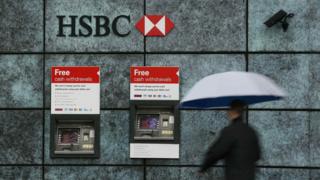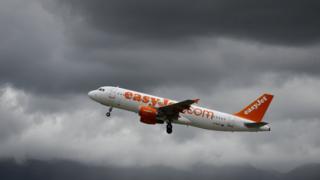Brexit impact: FTSE winners and losers since EU referendum – BBC News

 Image copyright Getty Images
Image copyright Getty Images A hundred days ago the world woke up to the news that Britain had voted to leave the European Union.
The decision sent global financial markets into a spin and saw the pound plunge to its lowest level in more than 30 years, as investors bet that the UK economy would suffer.
The FTSE 100 share index of the UK’s 100 biggest companies has since bounced back, but the pound is still down at levels last seen in the 1980s.
Now we have a deadline for when the formal Brexit talks will start – the end of March 2017 – the pound has fallen back to the lows it hit in the days after the 23 June vote.
The companies whose shares have fared best since referendum day are those which make most of their money in other currencies and are less exposed to the UK economy.
So who have the markets judged to be the biggest winners and losers so far?
Winner: Burberry
 Image copyright Getty Images
Image copyright Getty Images In the days after the referendum result, many investors started looking at FTSE 100 companies with large businesses outside the UK.
British fashion designer Burberry, which generates about 85% of its sales abroad, was one.
Even though the company warned staff it would be stronger inside the EU, its share price has shot up 24% since 23 June, adding more than 2bn to its market value and making it one of the biggest winners on the index.
Burberry is in the “sweet spot” for UK companies, says Laith Khalaf, an analyst at Hargreaves Lansdown.
Because of the pound’s fall, the money Burberry makes abroad in dollars, euros and yen is worth more back in the UK, and the costs in its UK head office are relatively lower, he says.
The iconic trench coat maker could also benefit from more Asian tourists bargain-hunting in the UK after the pound’s fall.
“Chinese tourists are very savvy in their understanding of global foreign exchange rates,” says an analyst at RBC Capital Markets, although he adds that more visitors to Burberry’s UK shops could come at the expense of sales in other regions.
Like all companies on the FTSE 100, Burberry’s shares have also been affected by non-Brexit issues, including a boost from last month’s London Fashion Week and poaching a new chief executive from Cline.
Winner: HSBC
 Image copyright Reuters
Image copyright Reuters Banking giant HSBC was also critical of the idea of leaving the EU, but since the referendum has seen its shares surge, by around 27%.
The bank – the UK’s second biggest company – earns about three quarters of its profits in Asia, according to Mr Khalaf, which could explain why investors think, as with Burberry, the weaker pound will boost its prospects.
Shares in more UK-focused banks Lloyds and Royal Bank of Scotland have dropped 24% and 29% respectively.
The recent shift in UK interest rates will also have played a part. Lower rates make it harder for banks to make a profit but that’s less of a problem for HSBC with its large overseas interests, than it is for the domestic banks.
Ian Gordon, a banking analyst at Investec, says most of HSBC’s business is outside the UK, including the US, where interest rates are forecast to rise.
Royal Bank of Scotland, in comparison, is an “almost pure UK business and ‘lower for longer’ interest rates is a UK phenomenon,” he says.
Also working in HSBC’s favour, Mr Gordon adds, is that the bank is handing back $2.5bn (1.9bn) to shareholders this year after it sold its Brazilian business.
Winner: Miners
 Image copyright BHP Billiton
Image copyright BHP Billiton The biggest winners, though? Mining companies. Something of a surprise for investors after the industry’s volatility in the last 12 months.
Edward Sterck, a metals and mining analyst at BMO Capital Markets, says: “This time last year mining investors were feeling pretty negative, and in January many were feeling very negative indeed.
“Sitting here today they are pretty buoyant.”
Mexican gold and silver miner Fresnillo’s shares have risen 46%, putting it top of the post-Brexit leaderboard. Swiss mining trader Glencore is up 39% and British miner Anglo American has also gained 39%.
The companies’ large foreign earnings, as well as rising metal prices, have helped turn around their fortunes.
Gold and silver have increased 6% and 12% respectively since the referendum. Seen as “safe haven” assets, they have been boosted by uncertainty in global financial markets and rock-bottom interest rates, two issues further intensified by the Brexit vote.
Loser: Easyjet
 Image copyright Getty Images
Image copyright Getty Images At the other end of the scale, the biggest loser on the blue chip index has been budget airline Easyjet.
Its shares are still down more than 34%, leaving the Luton-based firm in danger of being relegated from the FTSE 100.
Stephen Furlong, an analyst at Davy, says its shares haven’t recovered since warning shortly after the Brexit vote that the weaker pound would put off some UK holidaymakers and would make fuel – which it pays for in dollars – more expensive.
“The share price has taken a hammering and there’s still a lot of uncertainty,” Mr Furlong says.
Analysts at Barclays estimate that factors outside the airline’s control, such as terror attacks, strikes in France and congestion at Gatwick, will cost Easyjet at least 150m this year.
Also towards the bottom of the FTSE performance table is British Airways owner IAG, which has seen its shares fall 23% on similar fears about a drop-off in UK travel abroad.
Loser: Housebuilders
 Image copyright PA
Image copyright PA Like airlines and UK banks, housebuilders are seen as the most at risk in the FTSE 100 if the UK economy slows down or enters recession.
Shares in construction companies are down significantly since the referendum, despite lower interest rates, an ongoing housing shortage and schemes like Help to Buy bolstering the property market.
Mr Khalaf says: “The big elephant in the room is what effect Brexit will have on the economy and will it take its toll on house prices?”
Taylor Wimpey, Barratt Developments and Persimmon, three of the UK’s biggest homebuilders, have made back some share price losses, but are still down 20%, 14% and 13% respectively.
More than 100 days on, the market seems settled in its forecasts on construction firms and which other companies will gain and lose in the post-Brexit landscape, says Mr Khalaf.
“It may or may not end up being the right call but for now it looks pretty rational,” he adds.
Read more: http://www.bbc.co.uk/news/business-37485412